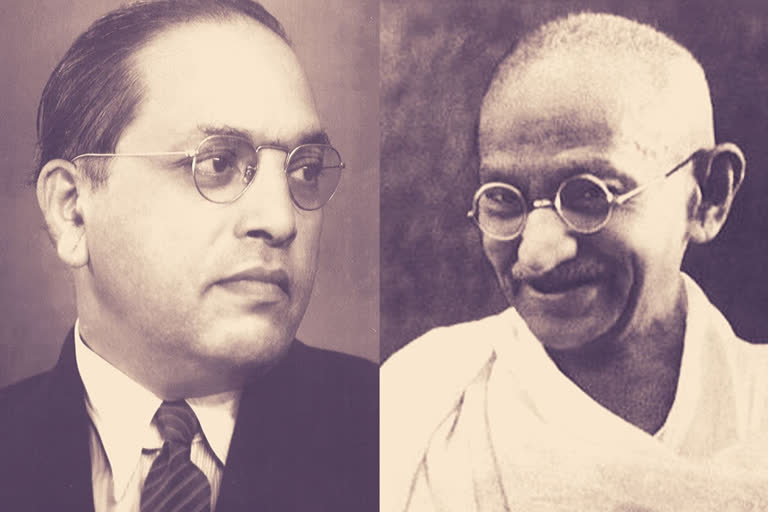Hyderabad: The pre-Independent days were marked by chaos and deception. The Communal Award was a well-thought evil design by the British that was imposed on India by UK Prime Minister Ramsay MacDonald to pursue its policy of divide and rule.
Poona Pact
The Poona Pact was an agreement between Mahatma Gandhi and B.R. Ambedkar on behalf of depressed classes and upper-caste Hindu leaders on the reservation of electoral seats for the depressed classes in the legislature of the British India government in 1932. It was made on 24 September 1932 at Yerwada Central Jail in Poona, and the principal signatories were Ambedkar — on behalf of the depressed classes — and by Madan Mohan Malviya — on behalf of Hindus and Gandhi, who was undertaking in jail as a protest against the decision made by British prime minister Ramsay MacDonald to give separate electorates to depressed classes for the election of members of provincial legislative assemblies in British India.
Both Ambedkar and Madan Mohan Malviya finally agreed upon 148 electoral seats, nearly twice as many seats were reserved for Depressed Classes under the Poona Pact than what had been offered by MacDonald's Separate Electorate.
Gandhi knew that once the depressed classes were treated as separate political identities, the issue of abolition of untouchability would get undermined and the separate electorates would keep the depressed classes to remain untouchables in perpetuity. What was indeed required was not the protection of the so-called political interests of untouchables but the root and branch eradication of untouchability from India.
Precursor to Poona Pact
On August 16, 1932, the British Prime Minister, Ramsay MacDonald, announced the Communal Award which provided for separate electorates for the ‘Depressed Classes’, the Muslims, the Europeans, the Sikhs, the Anglo-Indians and the Indian-based Christians.
The Award of 1932 was built on the notion of separate electorates that the British government had already put in place through the Morley-Minto Reforms (1909) and the Montagu-Chelmsford Reforms (1919).
Under a separate electorates system, each community was allocated a number of seats in the legislature, and only members from these communities would be eligible to vote to elect a representative of the same community to legislative assemblies.
Gandhi was bitterly opposed to the Communal Award, as the award in the continuum of constant efforts of the British imperialists to divide Indian people into a number of special-interest groups and to weaken the national movement.
Ambedkar was initially in favour of the award, as according to him political solutions like a separate electorate would work for the upliftment of depressed classes. However, after the series of negotiations both Gandhiji and Ambedkar agreed to a solution called Poona Pact and thereby withdrawing a separate electorate for depressed classes.
Depressed Class
In a settlement negotiated with Mahatma Gandhi, Ambedkar agreed for depressed class candidates to be elected by a joint electorate. Nearly twice as many seats (147) were reserved for the depressed classes in the legislature than what had been allotted under the Communal Award.
In addition, the Poona Pact assured a fair representation of the depressed classes in the public services while earmarking a portion of the educational grant for their uplift. The pact was an emphatic acceptance by upper-class Hindus that the depressed classes constituted the most discriminated sections of Indian society.
It was also conceded that something concrete had to be done to give depressed classes a political voice. The pact made the entire country morally responsible for the uplift of the depressed classes.
As the concessions agreed to in the Poona Pact were precursors to the world’s largest affirmative programme (reservation in legislature, public services, and educational institutions) launched much later in independent India. Most of all the pact made the depressed classes a formidable political force for the first time in Indian history.
Gandhi-Ambedkar
Both the leaders were critical of ills pertaining to the caste system and committed to the upliftment of depressed classes. However, both differ in the approach. Ambedkar was in favour of the annihilation of the caste system as it was beyond reforms. Gandhi did not support the abolition of the caste system or Varnashrama order. He was in favour of bringing behavioural change in society regarding the ills of the caste system.
